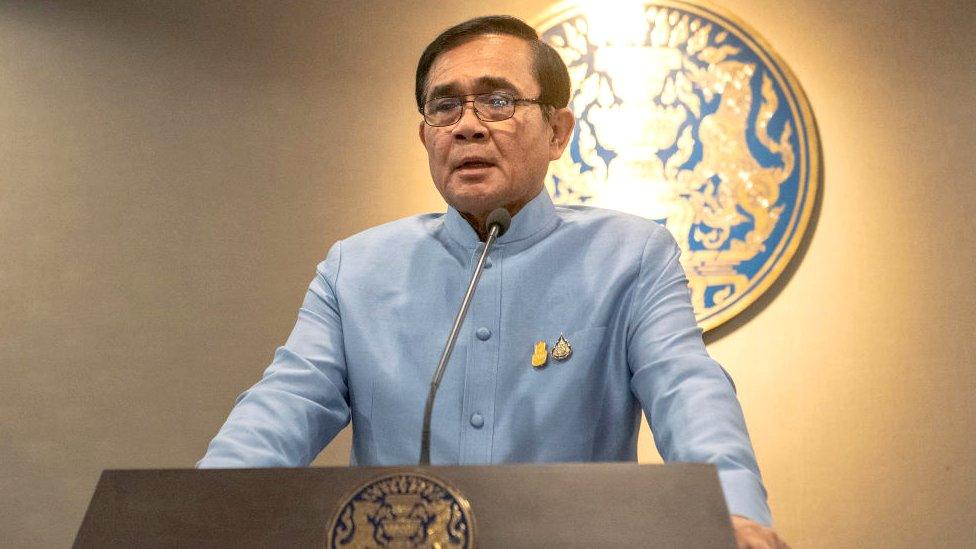Yingluck Shinawatra: Ex-Thai PM rejects impeachment hearing allegations
- Published
The BBC's Jonathan Head: "She was prime minister for nearly 1,000 days"
Thailand's ex-Prime Minister Yingluck Shinawatra has appeared at the National Assembly in Bangkok to defend herself against possible impeachment.
The accusations centre around a controversial rice subsidy scheme which critics say cost billions of dollars.
If found guilty she could be banned from political activity for five years.
Ms Yingluck was removed from office for abuse of power in May, days before the army seized control saying it needed to restore order after months of unrest.
Her supporters say the court action is a ruse to remove her from politics all together.
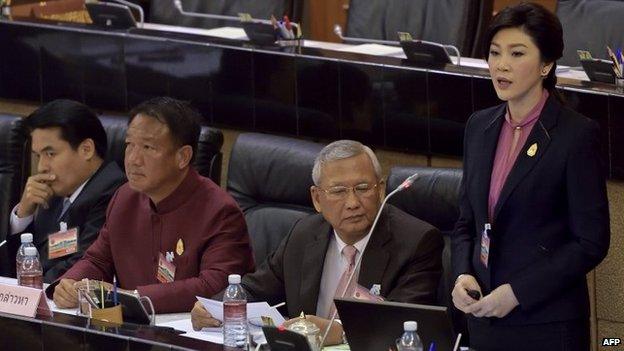
Ms Yingluck told MPs she had "no position left to be removed from"

Analysis: Jonathan Head, BBC News, Bangkok
In her hour-long statement, Ms Yingluck talked of her earnest efforts to help lift the living standards of poor farmers, and insisted she had been honest and transparent. Exactly how much money was lost in her rice subsidy scheme is a matter of hot dispute in Thailand, but it was a great deal, and the former prime minister did little to explain those losses.
Her argument that impeachment was not applicable to her, as she no longer holds political office, was more convincing. It is not clear that impeachment is even possible under the hastily drafted constitution the military brought in. Even more absurd are attempts to impeach the speakers of the lower and upper houses of parliament under Ms Yingluck for trying to amend the constitution - this by an assembly appointed after a coup that simply abolished the entire charter.
So it is inevitable that many Thais will reject this impeachment as a cynical ruse by her opponents to get Ms Yingluck, a vote-winner for her party, banned from politics for five years. This will do nothing for the military's professed goal of promoting reconciliation.

Making a rare appearance in public, Ms Yingluck told the National Legislative Assembly that the proceedings were futile because she no longer holds any political position.
"I was removed from my position as prime minister. I have no position left to be removed from," Ms Yingluck said.
"I ran the government with honesty and in accordance with all laws," she told the assembly, according to the AFP news agency.
The case concerns a scheme under which Ms Yingluck's government bought rice from Thai farmers - part of her rural support base - at a much higher price than on the global market.
It resulted in the accumulation of huge stockpiles of rice and hit Thailand's rice exports hard. Critics said the scheme was too expensive and vulnerable to corruption.
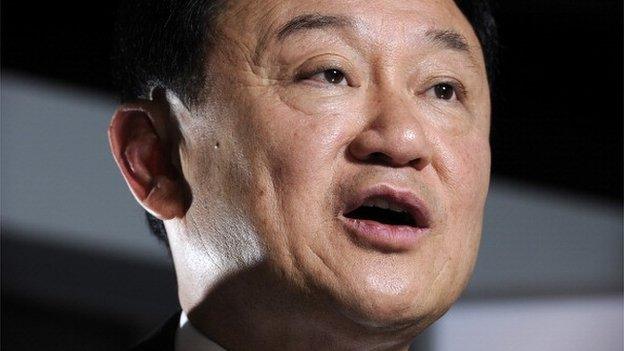
The Shinawatra family is very popular among rural Thais because of their populist programmes
Ms Yingluck has always maintained that she was not involved in the day-to-day running of the rice subsidy scheme and that abuses were not her responsibility.
The National Legislative Assembly, which has been hand-picked by military leaders, has said a decision on impeachment could come by the end of January.
Protest fears
The BBC's Jonathan Head in Bangkok says this is the first really divisive issue that has been allowed to bubble to the surface since the military took over and effectively suppressed all political debate.
A Thai protester says the military government has reacted aggressively to their use of the Hunger Games salute
There are fears a conviction could re-ignite the street protests which have repeatedly paralysed the capital in recent years. But only a handful of Ms Yingluck's supporters were at the parliament building on Friday.
Ms Yingluck is the sister of another ousted prime minister, Thaksin Shinawatra, who was removed from office in 2006.
Both remain hugely popular among Thailand's rural poor, but are hated by an urban and middle-class elite who accuse them of corruption and abuse of power.
Ms Yingluck was removed from office in early May after the Constitutional Court ruled she had acted illegally when she transferred her national security head.
The ruling followed months of political deadlock. Anti-government protesters had been trying to oust Ms Yingluck since November 2013.
- Published23 August 2017
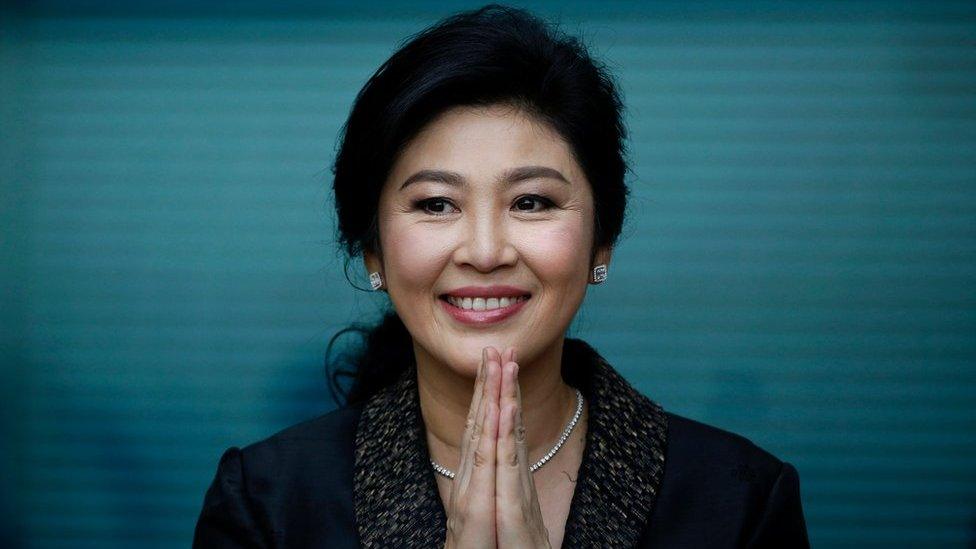
- Published21 November 2014

- Published19 November 2014
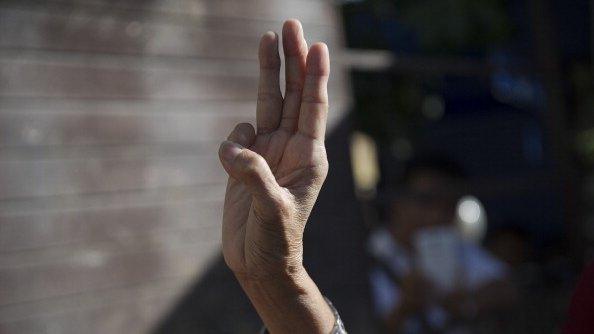
- Published8 September 2020
